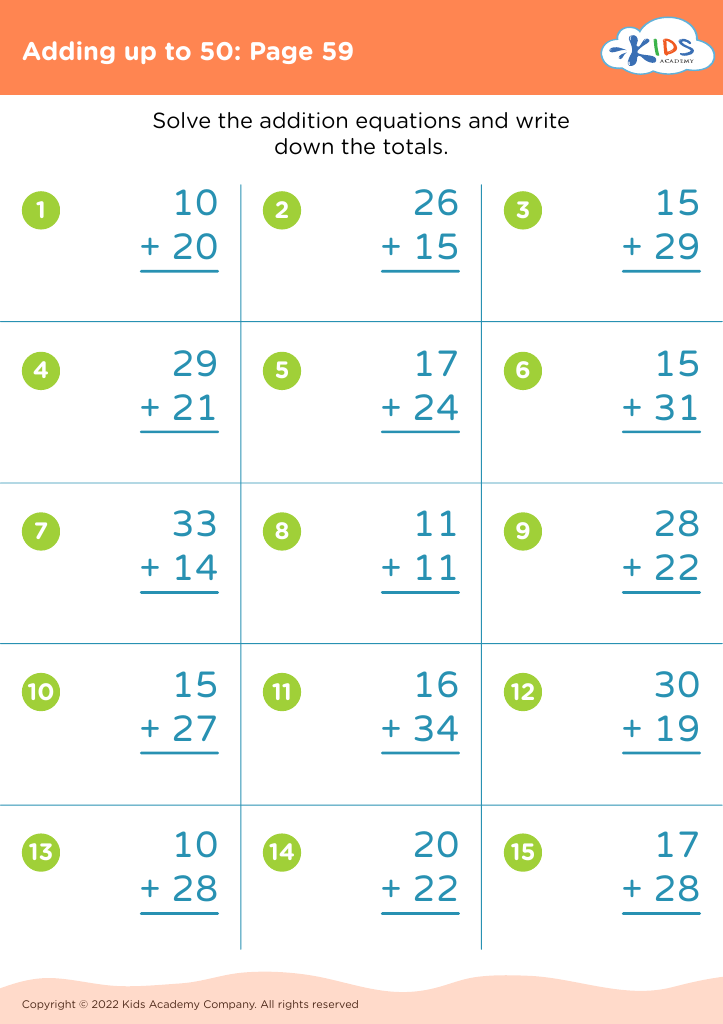Understanding sequence Addition Worksheets for Ages 6-9
4 filtered results
-
From - To
Understanding Sequence Addition Worksheets for Ages 6-9 helps young learners grasp the concept of sequential addition in a fun and engaging way. These worksheets are designed to reinforce math skills by guiding children through a series of addition problems that emphasize order and progression. Kids develop critical thinking as they learn to identify patterns, predict outcomes, and solve problems step-by-step. Suitable for classroom use or at home, these materials foster a strong foundation in math, ensuring children build confidence as they practice their adding skills. Explore this valuable resource to enhance your child's learning experience!
Understanding sequence addition is a foundational skill for children aged 6-9, directly impacting their mathematical development and overall cognitive growth. For parents and teachers, nurturing this skill is crucial. At this age, children begin to move beyond simple counting and basic addition to more complex mathematical concepts. Grasping how numbers relate to each other in a sequence lays the groundwork for future arithmetic operations, pattern recognition, and problem-solving skills.
Mastering sequence addition also helps children develop critical thinking and reasoning abilities. By visualizing numbers in sequence and understanding how they combine, children learn to approach math with confidence, reducing anxiety around the subject. This foundational knowledge is essential for higher-level concepts like multiplication and division, which rely on a strong understanding of addition.
Moreover, engaging children through games, activities, and real-world applications makes learning enjoyable, fostering a positive attitude towards math. When parents and teachers support the development of sequence addition, they not only enhance children’s academic performance but also encourage a lifelong love of learning. This early investment in their education lays the foundation for success in mathematics and other areas, building essential skills that extend beyond the classroom.




















